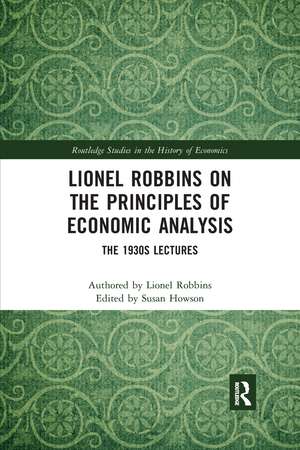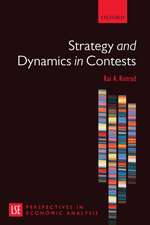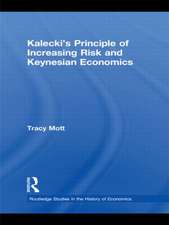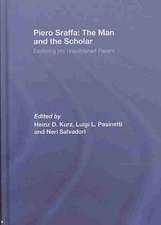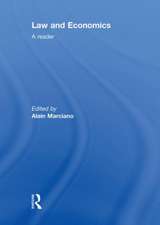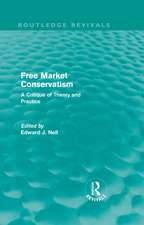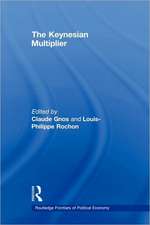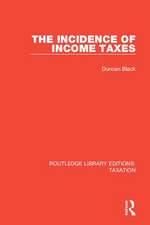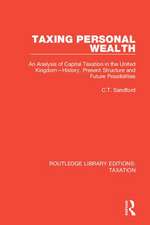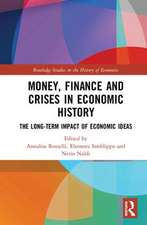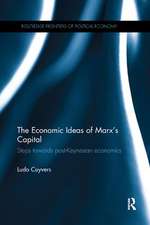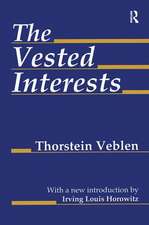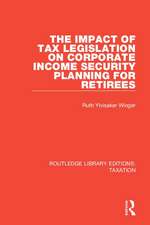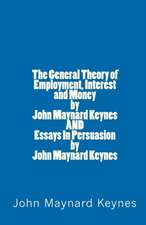Lionel Robbins on the Principles of Economic Analysis: The 1930s Lectures: Routledge Studies in the History of Economics
Autor Lionel Robbins Editat de Susan Howsonen Limba Engleză Paperback – 30 sep 2020
Besides his famous graduate seminar his most important and influential courses at LSE were the Principles of Economic Analysis, which he gave in the 1930s and again in the late 1940s and 1950s, as well as the History of Economic Thought, from 1953 until long after his official retirement. This book publishes for the first time the manuscript notes Robbins used for his lectures on the Principles of Economic Analysis from 1929/30 to 1934/40. At the outset of his career he took the advice of a senior colleague to prepare his lectures by writing them out fully before he presented them; the full notes for most of his pre-war lectures survive and are eminently decipherable.
Since he made two major revisions of the lectures in the 1930s the Principles notes show both the development of his own thought and the way he incorporated the major theoretical innovations made by younger economists at LSE, such as John Hicks and Nicholas Kaldor, or elsewhere, notably Joan Robinson. He intended to turn his lecture notes into a book, abandoning the project only when he was asked to chair the Committee on Higher Education in 1960. This volume is not exactly the book he wanted to write, but it is a unique record of what was taught to senior undergraduate and graduate economists in those 'years of high theory'. It will be of interest to all economists interested in the development of economics in the twentieth century.
| Toate formatele și edițiile | Preț | Express |
|---|---|---|
| Paperback (1) | 259.98 lei 6-8 săpt. | |
| Taylor & Francis – 30 sep 2020 | 259.98 lei 6-8 săpt. | |
| Hardback (1) | 1000.27 lei 6-8 săpt. | |
| Taylor & Francis – 8 feb 2018 | 1000.27 lei 6-8 săpt. |
Din seria Routledge Studies in the History of Economics
-
 Preț: 378.26 lei
Preț: 378.26 lei -
 Preț: 316.51 lei
Preț: 316.51 lei -
 Preț: 302.55 lei
Preț: 302.55 lei - 9%
 Preț: 1003.12 lei
Preț: 1003.12 lei -
 Preț: 324.46 lei
Preț: 324.46 lei -
 Preț: 311.28 lei
Preț: 311.28 lei -
 Preț: 326.99 lei
Preț: 326.99 lei -
 Preț: 326.82 lei
Preț: 326.82 lei -
 Preț: 665.69 lei
Preț: 665.69 lei - 9%
 Preț: 935.40 lei
Preț: 935.40 lei -
 Preț: 395.82 lei
Preț: 395.82 lei -
 Preț: 280.74 lei
Preț: 280.74 lei -
 Preț: 318.31 lei
Preț: 318.31 lei -
 Preț: 392.72 lei
Preț: 392.72 lei - 8%
 Preț: 392.82 lei
Preț: 392.82 lei -
 Preț: 310.43 lei
Preț: 310.43 lei -
 Preț: 214.15 lei
Preț: 214.15 lei -
 Preț: 399.71 lei
Preț: 399.71 lei -
 Preț: 157.37 lei
Preț: 157.37 lei - 28%
 Preț: 850.91 lei
Preț: 850.91 lei - 27%
 Preț: 995.39 lei
Preț: 995.39 lei - 18%
 Preț: 1005.04 lei
Preț: 1005.04 lei - 18%
 Preț: 1002.60 lei
Preț: 1002.60 lei - 28%
 Preț: 1046.46 lei
Preț: 1046.46 lei - 18%
 Preț: 1280.31 lei
Preț: 1280.31 lei - 18%
 Preț: 1055.51 lei
Preț: 1055.51 lei - 18%
 Preț: 1055.51 lei
Preț: 1055.51 lei - 28%
 Preț: 987.72 lei
Preț: 987.72 lei - 28%
 Preț: 824.17 lei
Preț: 824.17 lei - 18%
 Preț: 1061.93 lei
Preț: 1061.93 lei - 18%
 Preț: 716.32 lei
Preț: 716.32 lei - 18%
 Preț: 1006.07 lei
Preț: 1006.07 lei - 18%
 Preț: 1069.92 lei
Preț: 1069.92 lei - 15%
 Preț: 342.67 lei
Preț: 342.67 lei - 18%
 Preț: 1056.00 lei
Preț: 1056.00 lei - 28%
 Preț: 991.34 lei
Preț: 991.34 lei - 18%
 Preț: 1076.53 lei
Preț: 1076.53 lei - 18%
 Preț: 698.08 lei
Preț: 698.08 lei - 25%
 Preț: 332.02 lei
Preț: 332.02 lei - 18%
 Preț: 1169.78 lei
Preț: 1169.78 lei - 18%
 Preț: 1059.84 lei
Preț: 1059.84 lei - 30%
 Preț: 852.88 lei
Preț: 852.88 lei - 25%
 Preț: 830.10 lei
Preț: 830.10 lei - 18%
 Preț: 1119.93 lei
Preț: 1119.93 lei - 18%
 Preț: 1062.98 lei
Preț: 1062.98 lei - 18%
 Preț: 953.01 lei
Preț: 953.01 lei
Preț: 259.98 lei
Preț vechi: 318.95 lei
-18% Nou
Puncte Express: 390
Preț estimativ în valută:
49.75€ • 54.02$ • 41.79£
49.75€ • 54.02$ • 41.79£
Carte tipărită la comandă
Livrare economică 22 aprilie-06 mai
Preluare comenzi: 021 569.72.76
Specificații
ISBN-13: 9780367667139
ISBN-10: 0367667134
Pagini: 360
Dimensiuni: 156 x 234 mm
Greutate: 0.45 kg
Ediția:1
Editura: Taylor & Francis
Colecția Routledge
Seria Routledge Studies in the History of Economics
Locul publicării:Oxford, United Kingdom
ISBN-10: 0367667134
Pagini: 360
Dimensiuni: 156 x 234 mm
Greutate: 0.45 kg
Ediția:1
Editura: Taylor & Francis
Colecția Routledge
Seria Routledge Studies in the History of Economics
Locul publicării:Oxford, United Kingdom
Public țintă
Postgraduate and UndergraduateCuprins
EDITOR'S INTRODUCTION
PART I 1929-31
INTRODUCTION
1. The framework of economic analysis
2. The conception of equilibrium
GENERAL OUTLINE OF EQUILBRIUM ANALYSIS
3. Equilibrium of simple exchange
4. Equilibrium of simple exchange (continued)
5. Equilibrium of multiple exchange
6. Equilibrium of production: Factors fixed
7. Equilibrium of production: Factors fixed (continued)
8. Production: Factors flexible
9. Production: Factors flexible: labour supply (continued)
10. Equilibrium of production: Factors flexible: material factors
11. Equilibrium of production: Factors flexible: material factors (continued)
12. Interest rates, capitalization & the equilibrum of production through time
13. The supply of material factors (continued)
14. Supply of material factors (continued)
15A. General view of equilibrium theory
15B. Price relationships in the economic equilibrium [1931/2]
SPECIAL TOPICS
16. Consumers surplus
17. The laws of returns
18. Returns and costs
19. Costs: Definitions and the conditions of equilibrium
20. Costs: The supply curve and variations in demand
21. Rent, quasi rent and costs
22. Profits
PART II 1932/3-1934/5
INTRODUCTION
1. Preliminary injunctions
2. Nature of economic analysis
3. The divisions of equilibrium analysis
GENERAL OUTLINE OF EQUILIBRIUM ANALYSIS
4. Valuation and exchange: Individual disposition of goods
5. Valuation and exchange: Simple exchange
6. Production: Introduction
7. Production: Factors fixed (Acapitalistic)
8. Multiple exchange Valuation and exchange: Capitalistic production
9. The theory of interest
10. The theory of capital
PART III 1935/6-1939/40
INTRODUCTION
1. The development of scientific economics
2. XIXth century economics
3. The subject matter of economics (1934/5)
4. Ends and Means
STATICS
5. Valuation and Exchange: Introduction
6. Individual valuation
7. Exchange continued: Barter between two individuals
8. Multiple exchange
9. Production: Factors Fixed: Simple
10. Production: Non competing groups
11. Joint Production: Fixed Coefficients
12. Joint Production: The Laws of Returns
13. Joint Production
14. Monopoly
15. Monopoly and Distribution
16. Complex Production (continued): Joint Supply
17. Complex Production: Oligopoly
18. Capitalist Production: Conceptual
19. Time Preference
20. Capitalistic Production: Conditions equilibrium
21. Equilbrium Capitalist Production
22. Production: Labour Supply
23. The Theory of Rent
COMPARATIVE STATICS
24. Differences in Demand for particular commodities: A. Commodity Price
25. Differences in Demand for particular commodities: B. Factor Prices
26. Differences in Conditions of Supply: (a) Differences in Commodity Supply
27. Differences in Conditions of Supply: (b) Differences in Commodity Supply (continued
PART I 1929-31
INTRODUCTION
1. The framework of economic analysis
2. The conception of equilibrium
GENERAL OUTLINE OF EQUILBRIUM ANALYSIS
3. Equilibrium of simple exchange
4. Equilibrium of simple exchange (continued)
5. Equilibrium of multiple exchange
6. Equilibrium of production: Factors fixed
7. Equilibrium of production: Factors fixed (continued)
8. Production: Factors flexible
9. Production: Factors flexible: labour supply (continued)
10. Equilibrium of production: Factors flexible: material factors
11. Equilibrium of production: Factors flexible: material factors (continued)
12. Interest rates, capitalization & the equilibrum of production through time
13. The supply of material factors (continued)
14. Supply of material factors (continued)
15A. General view of equilibrium theory
15B. Price relationships in the economic equilibrium [1931/2]
SPECIAL TOPICS
16. Consumers surplus
17. The laws of returns
18. Returns and costs
19. Costs: Definitions and the conditions of equilibrium
20. Costs: The supply curve and variations in demand
21. Rent, quasi rent and costs
22. Profits
PART II 1932/3-1934/5
INTRODUCTION
1. Preliminary injunctions
2. Nature of economic analysis
3. The divisions of equilibrium analysis
GENERAL OUTLINE OF EQUILIBRIUM ANALYSIS
4. Valuation and exchange: Individual disposition of goods
5. Valuation and exchange: Simple exchange
6. Production: Introduction
7. Production: Factors fixed (Acapitalistic)
8. Multiple exchange Valuation and exchange: Capitalistic production
9. The theory of interest
10. The theory of capital
PART III 1935/6-1939/40
INTRODUCTION
1. The development of scientific economics
2. XIXth century economics
3. The subject matter of economics (1934/5)
4. Ends and Means
STATICS
5. Valuation and Exchange: Introduction
6. Individual valuation
7. Exchange continued: Barter between two individuals
8. Multiple exchange
9. Production: Factors Fixed: Simple
10. Production: Non competing groups
11. Joint Production: Fixed Coefficients
12. Joint Production: The Laws of Returns
13. Joint Production
14. Monopoly
15. Monopoly and Distribution
16. Complex Production (continued): Joint Supply
17. Complex Production: Oligopoly
18. Capitalist Production: Conceptual
19. Time Preference
20. Capitalistic Production: Conditions equilibrium
21. Equilbrium Capitalist Production
22. Production: Labour Supply
23. The Theory of Rent
COMPARATIVE STATICS
24. Differences in Demand for particular commodities: A. Commodity Price
25. Differences in Demand for particular commodities: B. Factor Prices
26. Differences in Conditions of Supply: (a) Differences in Commodity Supply
27. Differences in Conditions of Supply: (b) Differences in Commodity Supply (continued
Descriere
This book publishes for the first time the manuscript notes Robbins used for his lectures on the Principles of Economic Analysis from 1929/30 to 1934/40. At the outset of his career he took the advice of a senior colleague to prepare his lectures by writing them out fully before he presented them. He intended to turn his lecture notes into a boo
